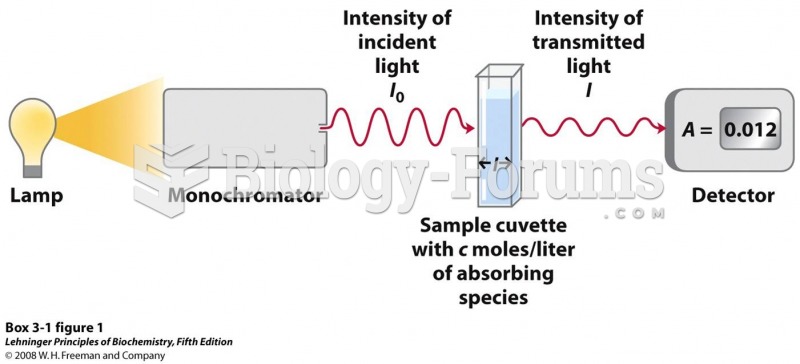|
|
|
About 600,000 particles of skin are shed every hour by each human. If you live to age 70 years, you have shed 105 pounds of dead skin.
The first documented use of surgical anesthesia in the United States was in Connecticut in 1844.
The training of an anesthesiologist typically requires four years of college, 4 years of medical school, 1 year of internship, and 3 years of residency.
Amphetamine poisoning can cause intravascular coagulation, circulatory collapse, rhabdomyolysis, ischemic colitis, acute psychosis, hyperthermia, respiratory distress syndrome, and pericarditis.
According to the American College of Allergy, Asthma & Immunology, more than 50 million Americans have some kind of food allergy. Food allergies affect between 4 and 6% of children, and 4% of adults, according to the CDC. The most common food allergies include shellfish, peanuts, walnuts, fish, eggs, milk, and soy.
 Sivapithecus is a Miocene ape (middle) with anatomical similarities to orangutans (left) rather than
Sivapithecus is a Miocene ape (middle) with anatomical similarities to orangutans (left) rather than
 Taking a blood pressure is one of the procedures the medical assistant extern may perform under the ...
Taking a blood pressure is one of the procedures the medical assistant extern may perform under the ...





